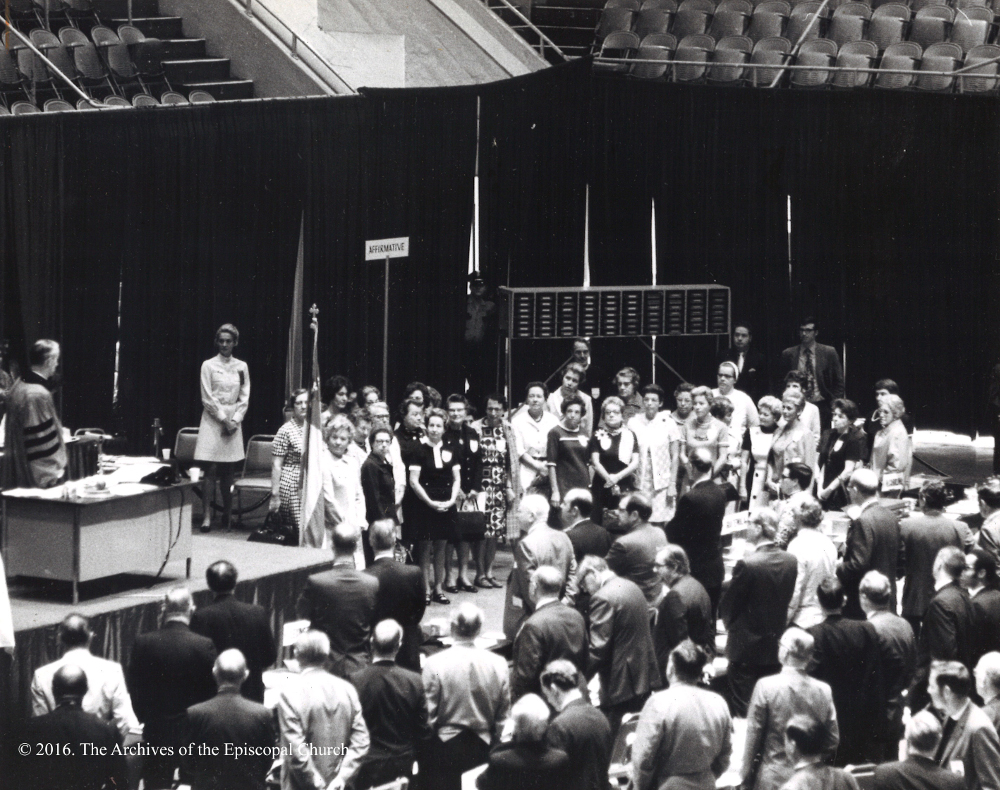Women Delegates: Post 1946
Elizabeth Dyer and the Diocese of Missouri had opened a door that would remain ajar thereafter. The women of the Triennial Meeting of 1946 sent a message to Convention urging them to interpret “layman” as all-inclusive; they were ignored. Renewed attempts to seat duly-elected women delegates in 1949 were met with a resounding rejection by the House of Deputies. In subsequent General Conventions, resolutions allowing female delegates were defeated over and over, with particular opposition coming from the lay deputies.
In 1964, after the lay order once again rejected women in spite of the Joint Committee on Structure's recommendation to admit, Presiding Bishop Lichtenberger was moved to take the unprecedented step of gently rebuking the House of Deputies for its “unwillingness to face the fact that women are... of the laity and members of the Body of Christ.” The tide turned that year, and in 1967 a Constitutional amendment calling for the inclusion of women finally passed.
In 1970 the amendment was ratified nearly unanimously, although the Diocese of Rhode Island requested to be polled so that the single “no” vote of its delegation would be a matter of record. In spite of this, the twenty-eight women delegates to the 1970 General Convention were formally welcomed by President of the House of Deputies, John Coburn, and were seated amid enthusiastic applause.
The Vote on Women Delegates, 1970. Listen as the vote to seat women in the House of Deputies is narrated by former President of the House, Rev. David Collins. New deputy Mrs. Lueta Bailey of Atlanta gives a speech on behalf of the women seated.
READ
The Living Church, 1952. A September 21, 1952 article from The Living Church sums up the positions for and against admitting women as deputies.
READ
American Church News Convention Daily, 1970. The American Church News Convention Daily suggests that, by being seated as deputies, women have abrogated the right to the special respect that had been accorded to them previously.
READ
Episcopal Life Convention Daily, 1970. The Episcopal Life Convention Daily offers a more enthusiastic take on the seating of women as deputies.

